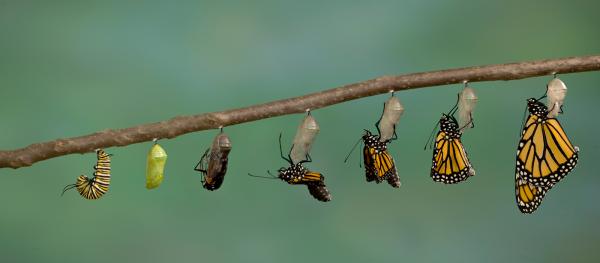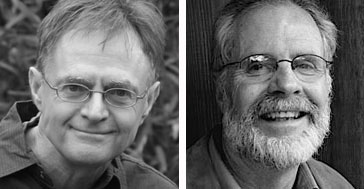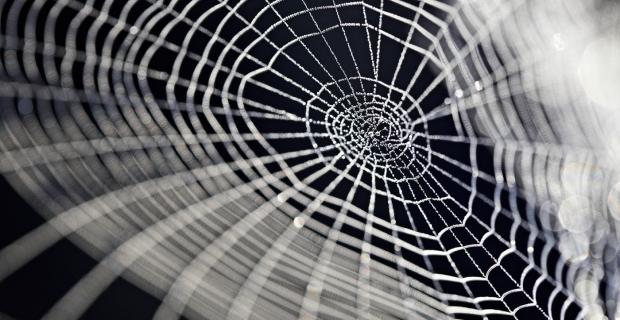You Can't Do Just One Thing: A Conversation with Richard Heinberg

Michael Stone: When you think about the systems view of life, what comes to mind?
Richard Heinberg: A lot of things. One is the phrase, "You can't do just one thing." The world is filled with relationships, and anything we do is going to impact parts of the system that we may never have even thought of.
The whole systems view stems from ecology, the study of the relationships between organisms and their environment — which is a discipline that got its start way back in the 1860s. Until ecology came along, we were studying organisms in isolation. Once we look at the ecology of, say, hummingbirds, we're also looking at both their external environment and the way they relate to other organisms; we even have to consider their internal microbial environment.
This way of thinking is fundamentally different from other aspects of Western science, and has altered the way many of us see the world. For example, in my work, which mostly has to do with energy, I've found that in taking a systems view, energy becomes a window through which to see and better understanding both natural ecosystems and human social systems.
When we look at human societies through the energy lens, we find ourselves seeing food as energy, technologies as ways of leveraging energy, and social complexity as a by-product of high rates of energy usage. Of course, we also become more keenly aware of the environmental impacts of energy production and consumption. As we become more energy literate we also pay more attention to how much energy we get back from our efforts at producing energy — whether growing food crops or drilling oil wells — and energy-returned-on-energy-invested (or EROEI) becomes a useful tool for evaluating potential energy sources.
There are many important questions that don't arise if we look at energy from a linear, one-thing-at-a-time point of view, which, unfortunately, is still largely dominant in our society. When you take a systems view, it's like seeing in 3-D and in color.
MS: Is there a reason why people have difficulty doing this?
RH: I think it mostly has to do with the history of Western thought and our tendency to divide reality into subject areas. It also has to do with our focus on naming things. Some languages are big on verbs, and some are big on nouns. We inheritors of the Indo-European language group have concentrated more on nouns and a little less on verbs than people in some other societies, such as the Native Americans. When we see life as a process rather than as a thing, we tend to take more of a systems view. Is that a crow — a static object — or is it life "crowing"?
MS: Is there something in our cultural history or our evolutionary history that slants us towards one way of thinking?
RH: The linearity of Western thought has a lot to do with forms of logic pioneered by the Greco-Roman philosophers. But in a larger sense, civilization itself fosters a "divide and conquer" attitude, and this is true no matter whether we’re talking about Chinese, Aztec, or European civilization. City-centered living requires a constant harvesting of wealth from local ecosystems and also from peripheral peoples. It’s no accident that civilizations gave rise to money, trade, and sophisticated weaponry.
MS: What are the ways that help people become aware of an alternative way of thinking?
RH: I don't think there's anything that helps more than spending time in nature, especially if we have someone along who can describe to us what we are seeing so that see a little more deeply. A lot of us are simply tone deaf to nature. Even if we go outside and look around, we don't understand what we're seeing. It helps to have a guide who can interpret the ecological tapestry. Once we learn the code, we can begin to understand those relationships for ourselves; it’s like learning to read: once you have that skill, whole worlds open up. I’m still mostly a novice in this department, but I’m fortunate to have spent some time with a few fluent nature interpreters, and even that little bit of guidance has been an enormous help.
MS: Where would this view of life make the most difference in the issues facing people today?
RH: It would make the most difference at higher policy levels. We have applied the divide-and-conquer attitude across the board to energy, natural resources, finance, you name it, and the results are uniformly dire. What we’ve gotten as a result is a brief spurt of economic growth, with worsening environmental problems and an increasing rate of depletion of resources. Civilizations often seem to do this: they trade resilience and sustainability for short-term wealth.
As I argue in my latest book, we’ve probably hit the limits to economic growth already or are in the process of doing so. So it's extremely important that we learn to adapt to natural limits in a way that doesn't jeopardize future generations — and that's going to require systems thinking.
MS: Are people more open to that view than they used to be?
RH: I think more people are now than was the case a few years ago, but we are seeing a substantial backlash from some folks who feel threatened by ecological thinking. They want to eat their cake and have it too. They feel that they're entitled to returns on their investments, and if the environment isn't cooperating and providing them with those, then it must be somebody's fault. The solution therefore is to find out whose fault it is and deal with them — whether it’s the EPA, the perpetrators of the climate change “fraud,” or whoever. If your solution to life's problems is to find villains, there are always plenty of candidates around.
MS: Do people sometimes turn this around and say, "We're the villains, and we have to change"?
RH: Yes, and in fact I think that's the inevitable conclusion when taking a systems view. In some ways, we're victims of our own success. Our strategy of dividing and conquering nature has given us enormous wealth and power, but also put us in profound peril because of changing climate, species extinctions, depleting topsoil, depleting energy resources, and more.
We can't solve those problems one by one, in isolation. We can't address topsoil depletion without addressing our entire agricultural paradigm. And that leads us to reconsider the extractive, industrial paradigm.
MS: Are there things that make you hopeful that there is an audience for this message?
RH: I don't think one can be around young people without having a sense of hope. I was just at a conference put on by students at Harvard around the idea of creating a new economic paradigm, much along the lines of systems thinking, and it was exciting to meet and talk with these very bright young people, who are obviously concerned about the future.
There are several hundred Transition Initiatives around the world and over a hundred here in the US; these are grassroots efforts to move communities away from oil dependency and build resilience. I think the Occupy movement is also a sign of hope. It is largely populated by young people who are seeing that is really no future if we keep going in our current direction, and they're willing to put their education on hold and go out in the streets and make a fuss. Ultimately I think that's what it's going to take.
MS: Do you see those people as coming out of a place of hope, or is it more of a sense that "This is our last chance. This is desperation"?
RH: I think it's both. I don't think that folks in the Occupy movement would be taking the risks they are if they didn't think both that this is our last chance, but also that there is hope.
Occupy has changed the national conversation. The notion that the top one percent is running the country to the detriment of the ninety-nine percent has become part of the national dialogue. Of course, critique goes deeper than that. What's really being said is that the fundamental economic structure of our society is both inequitable and unsustainable from an ecological point of view.
MS: Any other thoughts about the systems view?
RH: Eric Sevareid once said, "The main cause of problems is solutions." He was saying that the way we currently go about solving problems simply creates more problems. When we look at our problems in isolation, we address them in ways that just dig us into a deeper and deeper hole. But when we become systems thinkers, we find there are sometimes universally beneficial ways of addressing problems. We mimic nature's ways of doing things. If we're coming up with a solution that works for a whole array of problems, it's probably a good way to go, and it's most likely either coming from a systems approach or leading towards one.

Left to right: Richard Heinberg, Michael Stone




